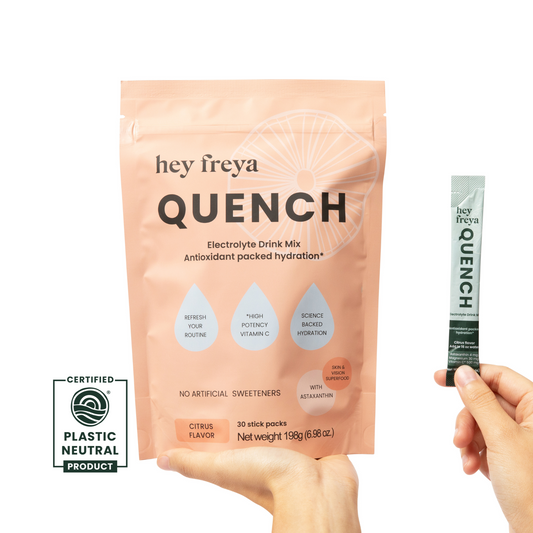We see that the word ‘woman’ can be loaded, in so many ways.
So we thought it would be good to have a little sit down and share why we are a women-centric* company.
There are so many ways that we can turn women into a monolith, restricting what they can and can’t be, simply by defining them. We are inclined to categorize, it helps us more efficiently understand our environment but it can also unfairly box someone in.
In the short-form, I am a woman, if I say I am. And you are a woman, if you say you are.
But let’s unpack that.
There are a few ways that medical and sociological literature defines the term ‘woman’, often intermingling and merging with the term ‘female’. Here’s how we break it down, and we’ll take away the terms so you can focus on the definition:
-
Chromosomally - XX. Guess what, XX/XY, or other variations don’t always look the way you expect, and completely ignores that there is a human living life out there who can tell you more than a chromosomal test.
-
Physiologically - having been born with reproductive organs like ovaries and a uterus (whether you still have them or not). Your eventual or previous capacity to bear a child is a very small portion of womanhood.
-
Genitally - When you look to the nether regions, does it represent an outie or an innie, or how about both or neither? The genitals can be a part of your experience of pleasure and sex (both of which we want you to have!) but this category is a poor approximation of one’s gender.
-
Hormonally - Estrogen causes feminization (development of hips and breasts) of the physical form and ovulation is typically triggered in female bodies by a cascade of hormones. Menopause is triggered by a suppression/cessation of hormone release. You can take hormones or restrict hormones and change how your entire body presents. This in no way can represent the totality of being a woman, but can make a huge difference for transwomen to be able to experience their bodies in sync with their identities.
-
Socially - in each society, there are social constructs and behaviors that we place on women. Gender constructs play a huge role in the stressors and lived experiences of women. Many women aren’t solely focused on periods, fertility or menopause. Many health concerns for women are seated right in the belly of our social constructs.
We don’t believe that chromosomes, organs, genitals or hormones define you. Some of these indicate one’s femaleness, femininity, reproductive capacity. We see that all or perhaps none of that is part of you, but the term ‘woman’ is greatly defined by how the social constructs of being a woman weigh on you.
A woman is someone who experiences their life as a woman, defined by them.
hey freya is here to help empower you. We are you-centric.
*women-centric does not mean women-exclusive. We are aware that non-binary and femme gender experiences are distinct, but sometimes overlap with women. We serve you, if it serves you.





